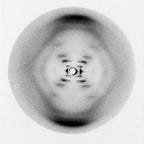Another Scientist You Ought to Know About
tl;dr: Dr. Katalin Karikó’s pioneering work in suppressing the immune response to mRNA injections was the basis for the COVID-19 vaccine’s success, and her perseverance through repeated rejections has quite literally saved humanity.
It would not be inaccurate to say that we have come to realize just how dependent we are on an invisible army of retail workers, healthcare professionals and public officials who, quite frankly, are getting too old for this.
However, there still exists a dishearteningly significant number of scientists whose influential work goes unappreciated, if noticed at all, on a daily basis. One such scientist is almost directly responsible for the vaccine we so desperately crave: Dr. Katalin Karikó, a Hungarian biochemist.
She is currently senior vice president at BioNTech RNA Pharmaceuticals, but her path was not an easy one. She suffered numerous grant rejections and was eventually demoted from her position on UPenn's faculty, despite being on track to being a professor. However, she and her collaborator Dr. Drew Weissman, UPenn’s Professor of Immunology, persevered and ended up on the other side with a groundbreaking discovery. We owe her an enormous debt of gratitude for continuing her research in the face of such opposition.
The COVID-19 vaccine is an mRNA vaccine, which means that the vaccine does not contain an attenuated/weakened version of the virus. Instead, it contains viral DNA, specifically coding for the spike proteins of the virus. This mRNA, when it enters the body, is absorbed and translated by immune cells, which subsequently display the spike proteins. These spike proteins are recognized as foreign antigens, leading to the same response from the immune system as if the entire virus had entered. This response involves “training” the body to be able to respond to a future contraction of the same virus, thereby giving the individual immunity.
However, the issue with injecting foreign substances into the body for therapeutic purposes is the recognition of those substances as foreign by the immune system, which is known as immunogenicity. Dr. Karikó’s pioneering work involves suppressing the immunogenicity of the mRNA, thereby allowing it to function as intended. This is not only revolutionary for vaccine treatments, as mRNA vaccines are cheaper and faster to produce, but for therapeutics in general. In fact, clinical trials utilizing mRNA as a potential treatment for cancer are currently underway, with other possible applications including immunotherapy and regenerative medicine.
For her incredible perseverance and ground-breaking work in suppressing mRNA immunogenicity, she is undeniably a scientist you ought to know about.
